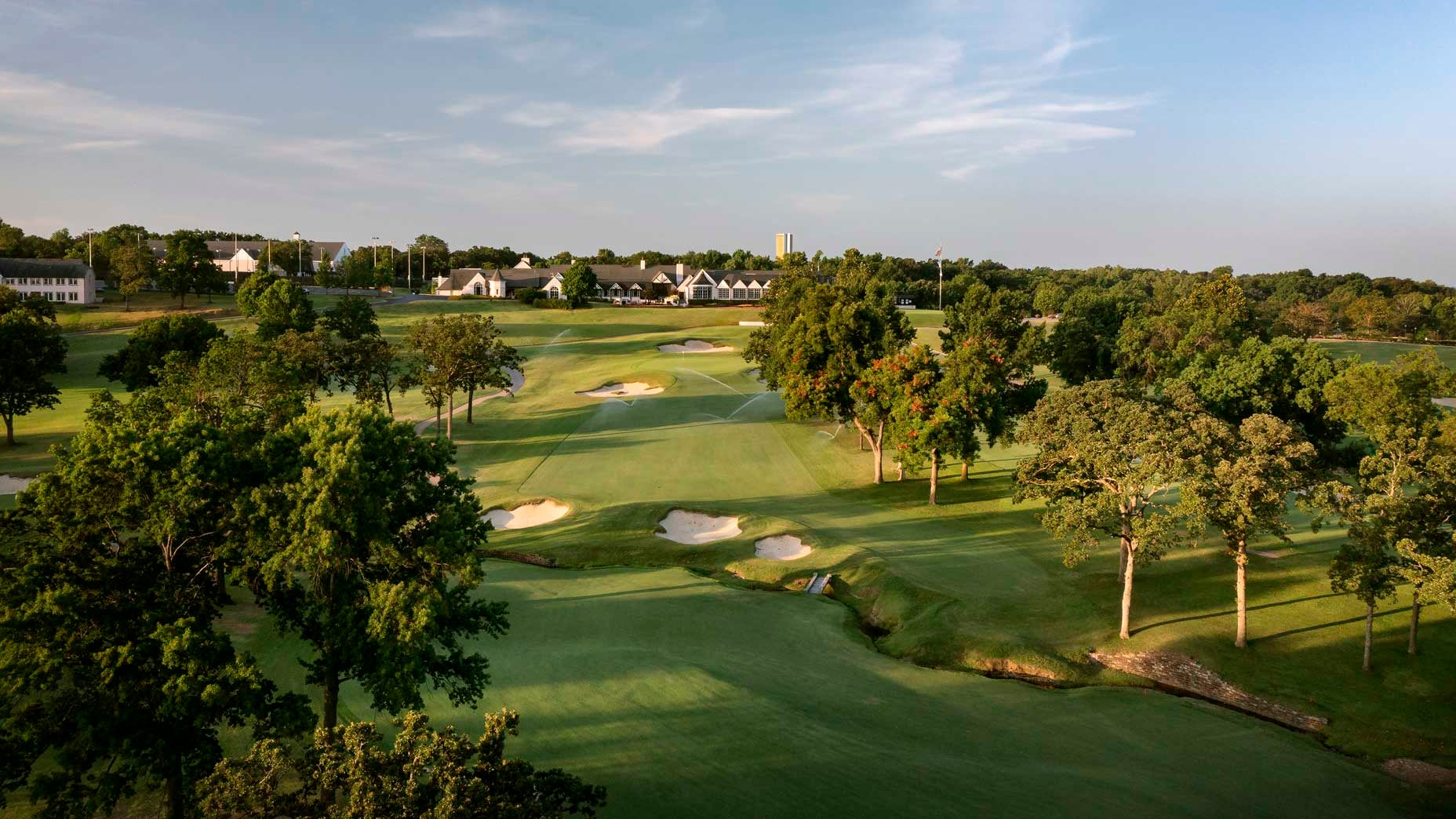The story of the week, until Sunday rolls around, has been Gil Hanse’s restoration of Southern Hills Country Club. There were all the trees he had removed, the reshaping of bunkers, etc. You’ve heard it by now. But one of the aspects of Hanse’s work that has been somewhat overlooked has been the restored presence of the creek.
It’s part of what makes the 18th hole so difficult for amateurs, as Matt Kuchar pointed out after his round Thursday.
Kuchar made the course look relatively tame in the first round, making five birdies and carding a 67 to sit in a tie for fourth. He polished it off by making par seem easy on the 18th. It’s definitely not. The 491-yard finisher at Southern Hills was the hardest hole on the course, a distinction it will keep every day this week. It’s hard from the tee, hard from the fairway and hard up around the green.
If it’s hard for pros, you better believe it’s hard for amateurs, too. Kuchar knows it.
“I have to think the members must dread 18,” Kuchar said. “I try to envision how they play it. I don’t know that they can tee off enough forward to enjoy that golf hole.”
This isn’t just a pro reminding you how much better he is than you are. No, this is Kuchar genuinely trying to understand course architecture, considering what ails those amateurs he often plays with during week pro-ams.
Running downhill from the tee, and completely uphill after the creek, the 18th is treacherous on first strike, lengthy on the second. I don’t know that they can tee off enough forward to enjoy that golf hole. In other words, he doesn’t know how forward the tees must be so amateurs can comfortably cover the creek. If they must play short of the creek, then it’s a full 200-yard shot up the hill into a green surrounded with bunkers. That’s a meaty carry, just because the creek keeps even the best amateurs from launching driver.
“It’s hard. It’s a beast,” Kuchar continued. “I saw Cameron Davis in my group thought hit a perfect drive, bounced down into the creek.”
For the pros, the creek is clearly in play off the tee. For amateurs, much the same. Hanse’s team restored what he called “a kicker slope” during an interview with The Fried Egg, which takes even the softest drives and sends them bounding toward the creek. Hitting it too good is a reality, as it was for Cameron Davis as well as World No. 1 Scottie Scheffler Thursday afternoon.
Hanse’s recent restoration makes life difficult up by the green, too, with five bunkers encircling the green. There used to be just two, and if you cleared them, you were good. Now, a low-trajectory approach, the kind that amateurs often play from 200 yards or more, likely kick right through the green in to a back bunker. And those bunkers? Well, even the best in the world are struggling to hit it close from the sand. From there, the slope runs off the front side, leaving plenty of room for ping pong chip shots back and forth.
“I come in with a 5-iron, and my 5-iron is not landing very softly, I assure you,” Kuchar said. “It’s a tough one to control that distance and how the ball rolls out.”
No one knows it better than Hanse himself, who shared a simple description with The Fried Egg in this video:
“That hole just doesn’t let up. You know, long shot into the green, and then the green is super challenging.”
Players taking it on for the first time might want to build up a little bit of a scoring cushion. That’s what they’re really saying.
Want to overhaul your bag for 2022? Find a fitting location near you at GOLF’s affiliate company True Spec Golf.
